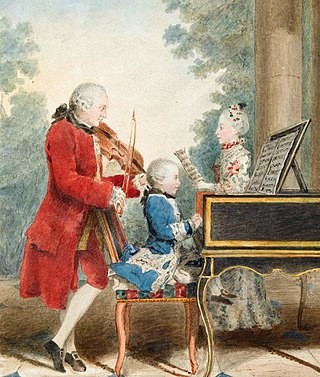
The Classical Period was an era of classical music between roughly 1750 and 1820.
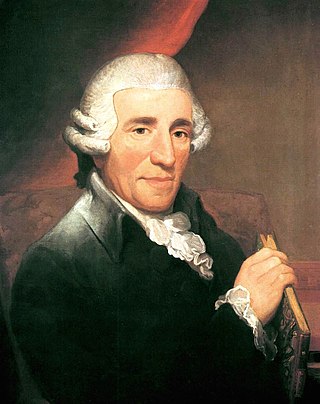
Franz Joseph Haydn was an Austrian composer of the Classical period. He was instrumental in the development of chamber music such as the string quartet and piano trio. His contributions to musical form have led him to be called "Father of the Symphony" and "Father of the String quartet".
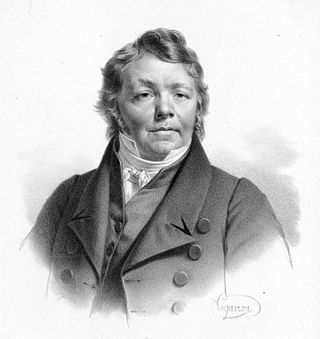
Johann Nepomuk Hummel was an Austrian composer and virtuoso pianist. His music reflects the transition from the Classical to the Romantic musical era. He was a pupil of Mozart, Salieri and Haydn. Hummel significantly influenced later piano music of the 19th century, particularly in the works of Chopin, Liszt and Mendelssohn.

Charles Welles Rosen was an American pianist and writer on music. He is remembered for his career as a concert pianist, for his recordings, and for his many writings, notable among them the book The Classical Style.

Esa-Pekka Salonen is a Finnish conductor and composer. He is the music director of the San Francisco Symphony and conductor laureate of the Los Angeles Philharmonic, Philharmonia Orchestra in London and the Swedish Radio Symphony Orchestra. In 2024, he announced his resignation from the San Francisco Symphony upon the expiration of his contract in 2025.
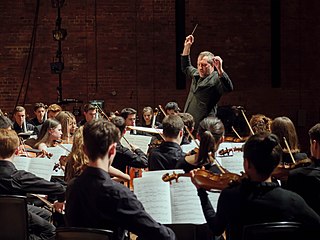
Thomas Joseph Edmund Adès is a British composer, pianist and conductor. Five compositions by Adès received votes in the 2017 Classic Voice poll of the greatest works of art music since 2000: The Tempest (2004), Violin Concerto (2005), Tevot (2007), In Seven Days (2008), and Polaris (2010).
Turkish music, in the sense described here, is not the music of Turkey, but rather a musical style that was occasionally used by the European composers of the Classical music era. This music was modelled—though often only distantly—on the music of Turkish military bands, specifically the Janissary bands.

Ludwig van Beethoven is one of the most influential figures in the history of classical music. Since his lifetime, when he was "universally accepted as the greatest living composer", Beethoven's music has remained among the most performed, discussed and reviewed in the Western world. Scholarly journals are devoted to analysis of his life and work. He has been the subject of numerous biographies and monographs, and his music was the driving force behind the development of Schenkerian analysis. He is widely considered among the most important composers, and along with Bach and Mozart, his music is the most frequently recorded.

Sir András Schiff is a Hungarian-born British classical pianist and conductor. He has received numerous awards and honours, including the Grammy Award, Gramophone Award, Mozart Medal, and Royal Academy of Music Bach Prize, and was appointed Knight Bachelor in the 2014 Queen's Birthday Honours for services to music. He is also known for his public criticism of political movements in Hungary and Austria.
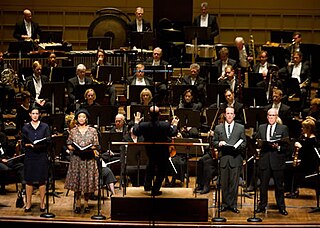
Steven Edward Stucky was a Pulitzer Prize-winning American composer.
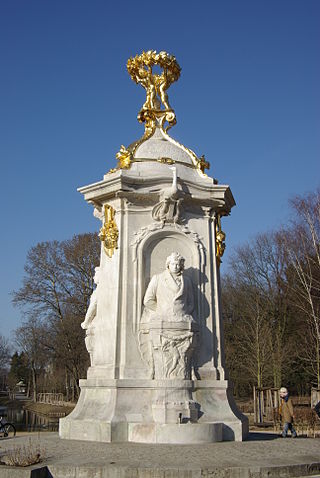
During the course of his lifetime, Ludwig van Beethoven (1770–1827) established relationships with many of his musical contemporaries. Beethoven was notoriously temperamental, eccentric and difficult to get along with; the history of his many relationships is replete with arguments, misunderstandings, and reconciliations. Beethoven had well-known quarrels with his one-time teachers, Joseph Haydn and Antonio Salieri, with the piano virtuoso and composer Johann Nepomuk Hummel, and the German composer Carl Maria von Weber. Conversely, he regarded Franz Schubert positively, praising the latter's compositions.

William Eddins is an American pianist and conductor. He served as music director of the Edmonton Symphony Orchestra from 2005 until 2017.

Emanuel "Manny"Ax is a Grammy-winning American classical pianist. He is known for his chamber music collaborations with cellist Yo-Yo Ma and violinists Isaac Stern and Young Uck Kim, as well as his piano recitals and performances with major orchestras in the world.

The Ojai Music Festival is an annual classical music festival in the United States. Held in Ojai, California, for four days every June, the festival presents music, symposia, and educational programs emphasizing adventurous, eclectic, and challenging music, principally by contemporary composers. A secondary focus of the Festival is the discovery or rediscovery of rare or little known works by past masters.
The New York Philomusica Chamber Ensemble is a musical ensemble founded in 1971 by A. Robert Johnson in New York City. The group presents an annual concert series of chamber music in New York City, Rockland County, and occasionally performs on tour. The ensemble owns the New York Philomusica Records label, which they use to sell albums of their music.

Jeremy Denk is an American classical pianist.

Conrad Yiwen Tao is an American composer and pianist and former violinist. Tao's piano and violin performances since childhood brought him early recognition at music festivals and competitions. At age 13, he was featured on the PBS TV series From the Top – Live from Carnegie Hall as violinist, pianist and composer. He won eight consecutive ASCAP Morton Gould Young Composer Awards. Among his compositions have been commissions by the New York Philharmonic, Hong Kong Philharmonic, Pacific Symphony and Dallas Symphony Orchestra.
Eric Jacobsen is an American conductor and cellist. He is currently a member of The Knights, and the Silk Road Project, and is the Music Director of the Orlando Philharmonic Orchestra and Virginia Symphony Orchestra, Principal Conductor of the Greater Bridgeport Symphony, and when was an artistic partner of the Northwest Sinfonietta from 2015-2018

The Classical Style: Haydn, Mozart, Beethoven is a book by the American pianist and author Charles Rosen. The book analyses the evolution of style during the Classical period of classical music as it was developed through the works of Joseph Haydn, Wolfgang Amadeus Mozart, and Ludwig van Beethoven.
















